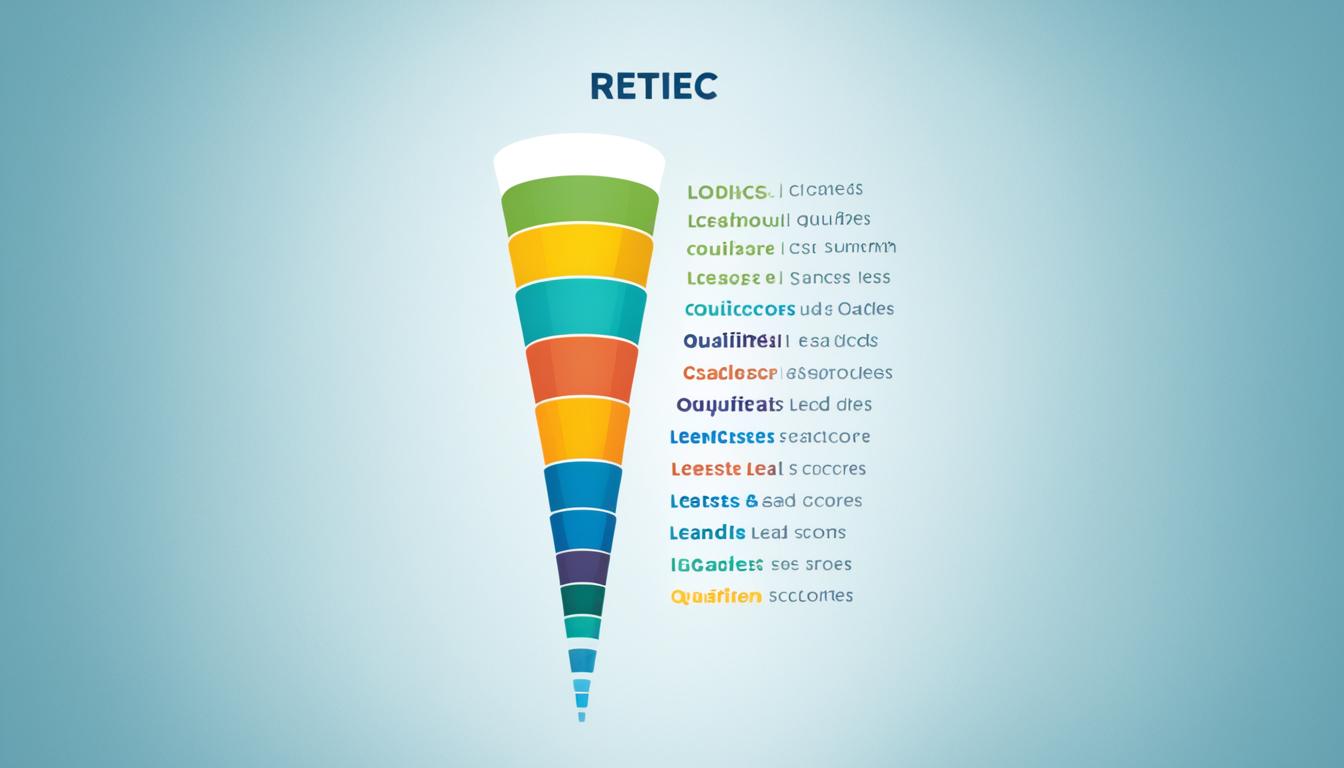Location-based marketing, also known as location marketing, geo-targeting marketing, or geolocation marketing, is a powerful strategy that utilizes data from mobile devices to deliver personalized content based on the user’s location. With the advancements in technology, location-based marketing has become increasingly popular, allowing marketers to target specific audiences and enhance their advertising efforts.
Location-based marketing leverages technologies such as geofencing, GPS, beacons, and Blueprints to determine the user’s location and provide relevant advertisements. By understanding the user’s location, marketers can customize their marketing messages and promotions to suit the preferences and needs of their target audience.
Whether it’s sending special offers to customers in proximity to a store, targeting users based on their real-time location, or tailoring advertisements based on specific geofenced areas, location-based marketing offers a range of opportunities for businesses to engage with their customers on a more personalized level.
In this article, we will explore the importance of location-based marketing, its key benefits, different types of location-based marketing, how to effectively use it in your marketing strategy, and its relevance in the context of mobile marketing. We will also discuss privacy considerations and conclude with key takeaways to help you better understand and utilize location-based marketing to drive your business growth.
Key Takeaways:
- Location-based marketing utilizes data from mobile devices to deliver personalized content based on the user’s location.
- It offers numerous opportunities for businesses to engage with their customers on a more personalized level.
- Technologies like geofencing, GPS, beacons, and Blueprints enable precise targeting of specific audiences.
- Location-based marketing plays a crucial role in mobile marketing, bridging the physical and digital worlds.
- Privacy considerations are important, and collecting location data should always be opt-in and privacy-compliant.
The Importance of Location-Based Marketing
Location-based marketing plays a crucial role in today’s digital landscape, offering businesses numerous benefits that contribute to their success. By harnessing the power of location data, marketers can generate higher sales and foster stronger customer relationships. According to a Factual report, 9 out of 10 marketers believe that location-based advertising generates higher sales, highlighting its effectiveness in driving business growth.
One of the key advantages of location-based marketing is its ability to provide marketers with valuable insights into customer needs and preferences. By understanding where their target audience is located and tailoring their content accordingly, marketers can deliver personalized experiences that resonate with customers on a deeper level. This personalized approach not only increases customer engagement but also enhances brand loyalty.
Location-based marketing allows businesses to optimize their marketing efforts by targeting specific geographic areas. By focusing their resources on locations where their target customers are concentrated, businesses can minimize wasteful spending and maximize their return on investment. This targeted approach ensures that marketing messages reach the right people at the right time, increasing the likelihood of conversion and sales.
Additionally, location-based marketing enables businesses to adapt their marketing strategies based on real-time data. By leveraging technologies such as geofencing, GPS, and beacons, marketers can track customer movements and behavior, gaining valuable insights into consumer patterns. This data-driven approach empowers businesses to optimize their campaigns, refine their messaging, and make informed marketing decisions.
In summary, location-based marketing is of utmost importance in today’s competitive business landscape. It allows marketers to better understand their audience, deliver personalized content, optimize their resources, and make data-driven decisions. By incorporating location-based marketing into their overall marketing strategy, businesses can stay ahead of the curve and effectively engage with their target customers.
Why Use Location-Based Marketing?
The rationale for utilizing location-based marketing is backed by compelling statistics. In 2022, over 94% of US millennials own smartphones, making mobile device users a prime target for marketers. Moreover, daily mobile device usage has surpassed TV usage, providing marketers with an opportunity to capture customers’ attention effectively. By incorporating location-based advertising, marketers can reach their target audience where they are actively searching, leading to higher engagement and improved marketing outcomes.
Location-based marketing offers several benefits that contribute to its effectiveness. Firstly, it allows marketers to deliver personalized and relevant content to users based on their precise location, resulting in increased customer engagement and conversion rates. Additionally, location-based marketing enables businesses to enhance their targeting capabilities by tailoring their advertising efforts to specific geolocations and user preferences. This precise targeting leads to higher ROI and better marketing performance overall.
An example of the benefits of location-based marketing can be seen in the context of retail. Suppose a retail store utilizes location-based marketing to send targeted offers and promotions to customers who are in proximity to their physical stores. This strategy increases foot traffic, strengthens customer relationships, and ultimately drives sales, demonstrating the clear advantages of leveraging location-based marketing.
The Benefits of Location-Based Marketing:
- Enhanced customer engagement through personalized content delivery.
- Increased targeting capabilities, leading to improved ROI and marketing performance.
- Utilizes real-time user location for more relevant and timely advertising.
- Drives foot traffic to physical stores and boosts in-store sales.
- Strengthens customer relationships by offering tailored experiences.
- Optimizes marketing efforts by reaching customers where they are actively looking.
Case Study: Location-Based Marketing in Retail
To further illustrate the benefits of location-based marketing, let’s consider a case study in the retail industry. A popular retail brand, XYZ Fashion, implemented location-based marketing strategies to drive customer engagement and increase sales. By leveraging geofencing technology, XYZ Fashion targeted customers within a specific radius of their stores with exclusive offers and promotions.
Through this targeted approach, XYZ Fashion achieved significant results. The location-based marketing campaign increased foot traffic to their stores by 20% and resulted in a 15% increase in sales within the targeted areas. By utilizing location data to deliver personalized advertisements based on customers’ proximity to their stores, XYZ Fashion successfully enhanced customer engagement and profitability.
| Benefits of Location-Based Marketing in Retail (XYZ Fashion) | Results |
|---|---|
| Increased foot traffic | 20% |
| Increase in sales within targeted areas | 15% |
This case study showcases the tangible benefits and positive impact that location-based marketing can have on businesses, particularly in the context of retail. By leveraging location data and targeting customers effectively, companies can significantly enhance their marketing efforts, drive customer engagement, and achieve higher sales.
Key Types of Location-Based Marketing
Location-based marketing utilizes various technologies to target specific audiences and deliver personalized advertisements. Here are the five key types of location-based marketing:
- IP Address Marketing: This type of marketing uses the location information derived from a device’s IP address to deliver targeted content. Marketers can tailor their promotions based on the user’s approximate geographic location.
- GPS Marketing: GPS marketing utilizes the GPS location of a device to target promotions. By leveraging GPS data, marketers can deliver relevant content to users based on their real-time location.
- Geofencing Marketing: Geofencing involves creating virtual boundaries around specific geographical areas. Marketers can then target users within these boundaries and deliver personalized content and offers.
- Beacon Advertising: Beacon advertising utilizes physical devices called “beacons” to communicate with users who are in close proximity. These devices transmit signals that trigger relevant advertisements or notifications on users’ mobile devices.
- Blueprints Location-Based Marketing: Blueprints location-based marketing combines location and behavior data to fine-tune audience targeting. By analyzing user behavior within specific locations, marketers can deliver highly personalized and relevant content.
These different types of location-based marketing offer unique strategies for reaching and engaging with target audiences. Marketers can leverage these approaches to deliver more relevant and personalized advertising experiences.
How to Use Location-Based Marketing
Location-based marketing offers a wide range of applications and can be leveraged in various ways to enhance your marketing strategy. Here are some key techniques and examples of how to utilize location-based marketing effectively:
1. Proximity Targeting
Proximity targeting allows marketers to reach customers in real-time within or near predefined geofenced locations. By identifying users’ geographic proximity to specific areas, you can deliver personalized and contextually relevant advertisements, promotions, and offers. For example, a restaurant located near a popular shopping mall could use proximity targeting to reach potential customers in the vicinity with exclusive dining deals or discounts.
2. Weather Targeting
Weather targeting focuses on utilizing weather conditions to deliver targeted ads and promotions. By taking advantage of weather data, marketers can tailor their messaging based on the current weather conditions in a particular location. For instance, a clothing retailer may use weather targeting to promote raincoats or umbrellas during rainy seasons, or beachwear and sunglasses during sunny days.
3. Geo-Conquesting
Geo-conquesting involves targeting users near competitors’ premises to entice them to visit alternative locations. By identifying users who have recently visited a competitor’s business or store, marketers can deliver personalized ads or offers to attract them to their own business. For example, a coffee shop may target users near a competitor’s location with a special discount on their next visit.
4. Audience Targeting
Audience targeting allows marketers to personalize ads based on various factors such as location, behavior, demographics, and interests. By utilizing data on users’ location, browsing history, and preferences, you can create targeted campaigns that resonate with specific audience segments. An e-commerce retailer, for instance, could use audience targeting to deliver customized recommendations based on users’ geographic location and past purchases.
5. Using a Combination of Location Technologies
Combining different location technologies can further enhance the effectiveness of your location-based marketing campaigns. By utilizing technologies such as GPS, geofencing, beacons, and Blueprints, you can create comprehensive strategies that maximize in-store traffic and brand awareness. For example, a retail store could use geofencing to target nearby customers with location-specific promotions, while also incorporating beacons inside the store to deliver personalized recommendations and offers.
By implementing these strategies and leveraging the power of location-based marketing, you can better engage with your target audience, drive conversions, and ultimately achieve your marketing goals.
Benefits & Disadvantages of Location-Based Marketing
Location-based marketing offers numerous benefits that can significantly enhance a company’s marketing efforts. By leveraging the power of location targeting, businesses can optimize their campaigns and achieve better outcomes. Here are some key advantages of location-based marketing:
Benefits of Location-Based Marketing
- Location Targeting: Location-based marketing allows businesses to reach customers in specific geographical areas, increasing the likelihood of driving foot traffic and boosting in-store visits.
- Data Offerings: This strategy provides valuable insights into customer behavior and preferences. By analyzing location data, businesses can gain a deeper understanding of their target audience, enabling them to create more personalized and relevant marketing campaigns.
- Enhanced Targeting: Location-based marketing enables businesses to refine their targeting by combining location data with other demographic and behavioral information. This level of precision ensures that marketing efforts are more effectively directed at the intended audience.
- Cost per Visit Performance Models: With location-based marketing, businesses can track not only impressions and clicks but also measure the actual store visits generated by their campaigns. This performance-based model ensures a better return on ad spend by focusing on the metric that matters most.
Despite its many advantages, location-based marketing also has some potential disadvantages that businesses should consider when implementing this strategy:
Disadvantages of Location-Based Marketing
- Opt-In Requirements: Location-based marketing typically requires users to opt in to share their location data. This can pose a challenge in obtaining a sufficient number of users who are willing to grant access to their location information.
- Limited Reach to Non-Smartphone Users: Location-based marketing heavily relies on mobile devices for data collection. Therefore, businesses may miss out on opportunities to target potential customers who do not use smartphones.
- Inappropriate Targeting: If not implemented carefully, location-based marketing can result in misdirected advertisements that may not resonate with the intended audience. Inaccurate or untimely location data can lead to targeting errors and ineffective campaigns.
- Dependence on Accurate Location Data: The success of location-based marketing relies on obtaining accurate and reliable location data. Inaccurate or outdated information can negatively impact the effectiveness of campaigns and lead to wasted resources.
When considering location-based marketing, businesses should carefully weigh the potential benefits and disadvantages to determine if it aligns with their overall marketing goals and target audience. By understanding how to leverage the advantages and mitigate the challenges, businesses can maximize the potential of this marketing strategy in driving success.
How Effective is Location-Based Marketing?
Location-based marketing is highly effective in boosting in-store traffic and increasing brand awareness. Compared to other advertising methods, location-based marketing has shown significant success in driving customer engagement and driving business growth.
By utilizing location data from mobile devices, marketers can track the impact of their campaigns on foot traffic and make informed decisions based on analytics. This enables them to optimize their marketing strategies and deliver personalized content to their target audience, resulting in higher conversion rates and improved sales performance.
One of the key advantages of location-based marketing is its ability to target audiences based on real-world interests and behaviors. By leveraging user location data, marketers can create highly relevant and personalized campaigns that resonate with their target customers. This enhances the effectiveness of location-based marketing strategies and increases the likelihood of customer engagement and conversion.
Benefits of Location-Based Marketing
Location-based marketing offers several benefits that contribute to its effectiveness:
- Increased Foot Traffic: By targeting customers in close proximity to their physical stores, businesses can drive more foot traffic and increase the chances of making a sale.
- Enhanced Customer Engagement: Personalized and location-specific content helps to create a more engaging customer experience, increasing the likelihood of interaction and conversion.
- Improved Targeting: Location-based marketing allows businesses to target their ideal customers based on their real-world behaviors, interests, and demographics, ensuring their campaigns reach the most relevant audience.
- Optimized Ad Spend: By focusing their marketing efforts on specific locations and audiences, businesses can optimize their advertising budget and achieve higher return on investment (ROI).
Overall, the effectiveness of location-based marketing stems from its ability to deliver timely and relevant content to the right audience. By leveraging user location data, businesses can create targeted and personalized campaigns that drive customer engagement, increase sales, and boost brand awareness.
Who Uses Location-Based Marketing?
Location-based marketing is a versatile tool that can be effectively used by any business with a physical presence. By leveraging location-based marketing strategies, industries such as retail, hospitality, stadiums, events, travel, transportation, hospitals, and restaurants can engage with their customers, optimize mobile engagement, and encourage desired consumer behavior.
For retail businesses, location-based marketing allows them to target customers in specific geographic areas and drive foot traffic to their stores. By delivering personalized offers and promotions based on customers’ locations, retailers can increase sales and enhance the overall shopping experience.
In the hospitality industry, location-based marketing enables hotels and resorts to provide personalized recommendations and offers to guests based on their current or planned activities. This helps create memorable experiences and build long-term customer loyalty.
Stadiums and event organizers can benefit from location-based marketing by delivering real-time updates, event information, and exclusive offers directly to attendees’ mobile devices. This enhances the overall event experience and increases fan engagement.
Travel and transportation companies can optimize their mobile engagement by providing real-time information about flights, trains, buses, or car rental services based on the user’s location. This helps travelers make informed decisions and simplifies their journey.
Hospitals can leverage location-based marketing to improve patient experiences and streamline healthcare processes. By providing patients with location-specific information, such as directions, waiting times, and appointment reminders, hospitals can enhance patient satisfaction and reduce stress levels.
Restaurants can use location-based marketing to drive foot traffic during specific times of the day by offering targeted promotions and discounts. This helps increase table occupancy and attract new customers to try their offerings.
Overall, location-based marketing is a powerful tool that can be tailored to various industries and business types. By understanding the needs and preferences of their target audience, businesses can effectively utilize location-based marketing to enhance customer experiences, drive in-store traffic, and achieve their marketing goals.
Location-Based Marketing in the Context of Mobile Marketing
Location-based marketing plays a crucial role in mobile marketing by seamlessly merging the physical and digital worlds. By leveraging geolocation data, marketers can deliver contextually relevant content directly to users based on their whereabouts, enhancing the effectiveness of their campaigns.
One of the key techniques used in location-based marketing is proximity marketing, which is made possible through the utilization of beacon technology. Beacons are small wireless devices that transmit signals to nearby mobile devices, providing precise location information. This enables marketers to target audiences with tailored campaigns when they are in close proximity to a specific location or point of interest.
Location-based marketing proves particularly useful for businesses operating in dynamic environments such as shopping malls, airports, stadiums, and hospitals. Visitors to these venues have specific information needs and expect personalized experiences. By delivering targeted content based on their geolocation, marketers can engage with these audiences in a meaningful way and provide them with the information they are seeking.
With location-based marketing in mobile marketing, businesses can build an intimate connection with their customers by delivering relevant offers, notifications, and promotions, at just the right time and place. This level of personalization not only enhances the customer experience but also increases the likelihood of conversion and brand loyalty. Through strategic implementation of location-based marketing strategies, businesses can optimize their mobile marketing efforts and stay ahead in the competitive landscape.
Privacy Considerations in Location-Based Marketing
When it comes to location-based marketing, privacy is a top priority. Marketers understand the importance of protecting consumer information while utilizing location data to enhance their campaigns. By collecting opted-in, privacy-compliant location data from smartphones, marketers ensure that they have the necessary consent from users to leverage their location information.
Data protection regulations and industry self-regulation organizations play a crucial role in safeguarding consumer privacy. These regulations and organizations set guidelines and standards that marketers must adhere to, ensuring that consumer information is handled responsibly and securely.
Location-based marketing takes a group-oriented approach, focusing on targeting large audience groups with similar behaviors rather than targeting individuals specifically. This approach helps protect individual privacy by not singling out users based on their location data.
By aggregating location data in an anonymous and aggregated manner, marketers can harness the power of location-based marketing while respecting privacy. The use of anonymized data ensures that individual identities are protected while still providing valuable insights into consumer behavior and preferences.
Location-based marketing not only benefits marketers but also provides value to consumers. By delivering personalized and relevant content based on users’ locations, marketers ensure that their messages are more targeted and useful. Consumers receive advertisements that are tailored to their specific needs and preferences, resulting in a more relevant and engaging experience.
| Privacy Considerations in Location-Based Marketing | Benefits |
|---|---|
| Data Protection Regulations | Ensures consumer privacy is respected |
| Industry Self-Regulation | Sets guidelines and standards for responsible data handling |
| Group-Oriented Approach | Targets large audience groups with similar behaviors instead of individuals |
| Aggregated Data | Protects individual identities while providing valuable insights |
| Personalized and Relevant Content | Enhances user experience by delivering tailored messages |
Conclusion
Location-based marketing is a powerful strategy that allows marketers to deliver personalized and relevant content based on users’ locations. By utilizing technologies such as geofencing, GPS, beacons, and Blueprints, marketers can target specific audiences and deliver personalized advertisements. This approach has numerous benefits, including increased sales, improved customer relationships, and enhanced targeting.
While privacy considerations and limitations exist, location-based marketing remains an effective tool for engaging with customers and driving business growth. Marketers can leverage location-based marketing by understanding the key principles and utilizing the various types of strategies available. When implemented correctly, businesses can maximize the potential of location-based marketing to their advantage.
Overall, location-based marketing offers a unique opportunity for businesses to better understand and connect with their target audience. It provides valuable insights that enable marketers to deliver personalized experiences, improve customer engagement, and ultimately achieve their marketing objectives.



